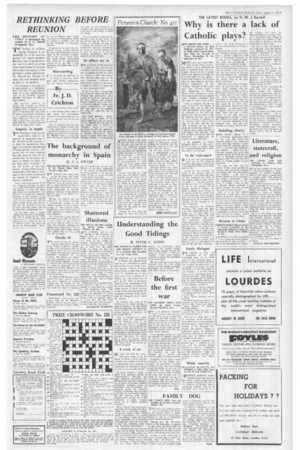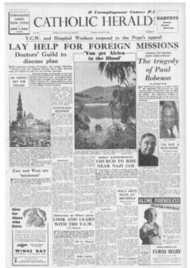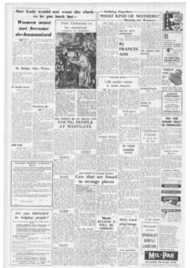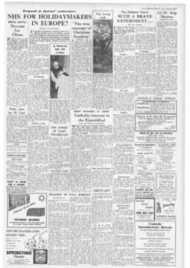Page 3, 15th August 1958
Page 3

Report an error
Noticed an error on this page?If you've noticed an error in this article please click here to report it.
Tags
Share
Related articles
Reform Before Luther?
Inside Spain Ton-da
Spanish Catholic Leader Suggests Course Between Extremes
Spain And Kennedy
History
The background of monarchy in Spain
By .1. J. DWYER
THE SPANISH ROYAL HOUSE, by Sir Charles Petrie, Bart. (Geoffrey ples, 30s.).
THE monarchy has always been
by far the most vital organ in the life of the Spanish nation. and its future is once again a contemporary issue. Sir Ciliates Petrie. who is highly qualified to write on Spanish affairs, here offers. with as much background as possible, character sketches of the Spanish Bourbon kings from Philip V to Alfonso XPII.
Writing with studied calm and moderation, Sit Charles provides a much-needed ineidote to the " Black Legend," so that a careful perusal of this valuable hook should lead to the toning down of many partisan overstatements and rash judgments.
His delineation is none the less successful. Charles Ill. for instance. is seen clearly as the eccentric huntsman with no mind for anything hut shooting. although the suppression of the Jesuit-one of the two great public crimes Of the 18th century-has to be passed over all too quickly.
Charles -INT Iabject Charles IV. domin ated by Louisa Maria and her lover, Godoy. in likewise brought to life; while Ferdinand VII, regarded by nearly all the historians as a cruel and cowardly knave, is somewhat extenuated by Sir Charles. Who passes very gently over the disordered life of Ferdinend's feckless daughter, Isabella II. Alfonso XII, who found Spain in a state of chaos after the experience of the First Republic. and managed to leave her in comparative peace, well deserved the title of El Pacificudor.
To Alfonso XIII the author pays tribute for great natural ability and entire sincerity in seeking nothing but the welfare of his country. From the very outset he was made the target of calumny, and Sir Charles says roundly that Alfonso was no more responsible for the disaster in Morocco than our King George V for the surrender of Kut, or Queen Victoria for the death of Gordon.
Had Alfonso XIII and Primo de Rivera been able to work together in harmony, the subsequent catastrophe might well have been avoided; but the disruptive elements were encouraged and allowed to coalesce by a series of quite avoidable blunders. The last chapter deals interestingly with the position of Don Juan ("the Pretender") and his son and heir, Don Juan Carlos, vis-à-vis General Franco.
blog comments powered by Disqus









